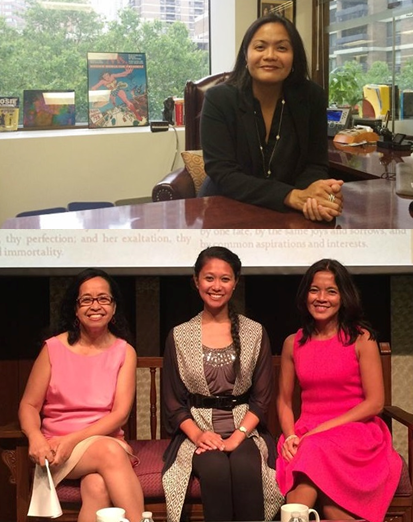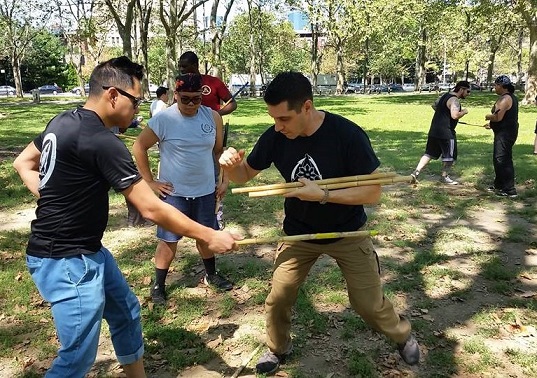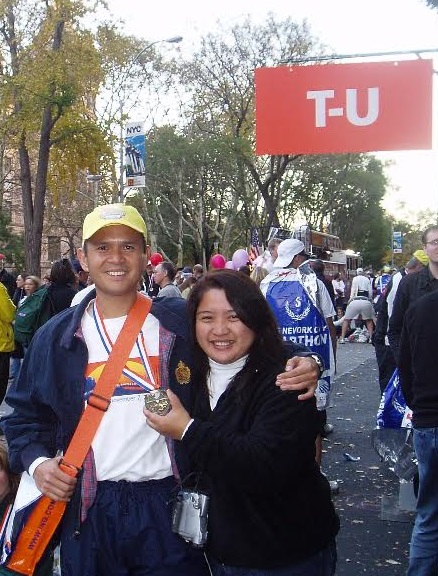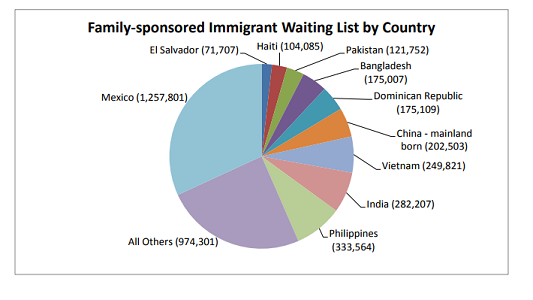333K Filipinos languishing in family petition wait list, NaFFAA calls for compassion
By Cristina DC Pastor
The Philippines ranks behind Mexico for having the biggest number of family-based petitions, at 333,564 Filipinos waiting to join their families in the U.S. There are more than 1.25 million Mexicans in the immigration wait list.
According to the latest figures from the National Visa Center’s November 2017 report to the Department of State, overall, there are over 4 million people on the wait list. The countries with the most number of applicants come from Mexico, the Philippines, India and Vietnam.
“Not only do Filipinos have the second highest number of family-sponsored waiting list registrants in the world, but they also suffer the longest wait times of any group: more than 23 years!” said the National Federation of Filipino American Associations (NaFFAA) in a statement.
Professor Rose Villazor of the University of California at Davis, School of Law noted several “interesting points” about the Filipinos in the family-based petition wait list.
First, of the number of Filipinos waiting for visas, the third category — married sons and daughters of U.S. citizens — has the highest group of people waiting – 128,108. “This number represents about 36 percent of the total number of Filipinos waiting for visas,” she said in an email interview with The FilAm.
Second, the next group of Filipinos on the waiting list are the siblings of U.S. citizens who fall under the fourth category of family-preference visa categories. “There are 125,288 brothers and sisters of Filipinos who are U.S. citizens who are waiting to immigrate. This represents about 35 percent of the total number of Filipinos waiting for visas.

From left, Professor of Law Rose Villazor, NAFFAA Board Member Marie Cunning, and NaFFAA National Chair Brendan Flores
“The remainder is composed of unmarried sons and daughters of U.S. citizens and spouses and unmarried sons and daughters of legal permanent residents,” said Villazor.
The numbers, she stressed, suggest the extent to which Filipinos value their family.
“Similar to Mexico, many U.S. citizens from the Philippines and legal permanent residents desire to have their family members come to the United States. In other words, the visas available for certain family members are thus ‘oversubscribed,’” she pointed out.
Another reason why the numbers from the Philippines (as well as Mexico) are so high is because immigration law imposes a per-country limit.
“Each country is capped at 7 percent. That is, each country is limited to 7 percent of all visas allocated per year. Since Filipinos submit high number of applications, the 7 percent is easily reached and that leads not only to the significant number of Filipinos who are on the waiting list but also how long they have to wait, an estimated 20 year-wait,” she said.
Villazor said she does not see any relief under the Trump administration.
“I see the opposite,” she said. The proposed RAISE Act in Congress seeks to eliminate the 3rd and 4th categories of family members for whom a U.S. citizen or LPR can submit a petition. It also seeks to remove parents of U.S. citizens and adult children of U.S. citizens from being petitioned. Filipinos who want U.S. citizens and LPR individuals to continue having the right to petition their family members should be very concerned under this administration.”
NaFFAA National Chairman Brendan Flores said that while the White House’s proposed pathway to citizenship for DREAMers appears to represent progress, “We (at NaFFAA) believe that the additional restrictions they propose on family-based immigration is an affront to the American spirit of compassion and freedom.”
“We believe that the focus of the current debate should be on the countless stories of reunified family members and how they have contributed to the freedom and opportunity of the American promise,” he said.
Marie Cunning, member of NaFFAA’s Board of Governors, added: “NaFFAA expresses our concern for any proposal that would separate Filipino families from their loved ones. Family-based immigration has helped positively transform the lives of Filipino Americans across this great nation. We encourage the Administration and Congress to support immigration reform that protects and expedites family reunification, instead of eliminating this fair and compassionate process.”
© The FilAm 2018












